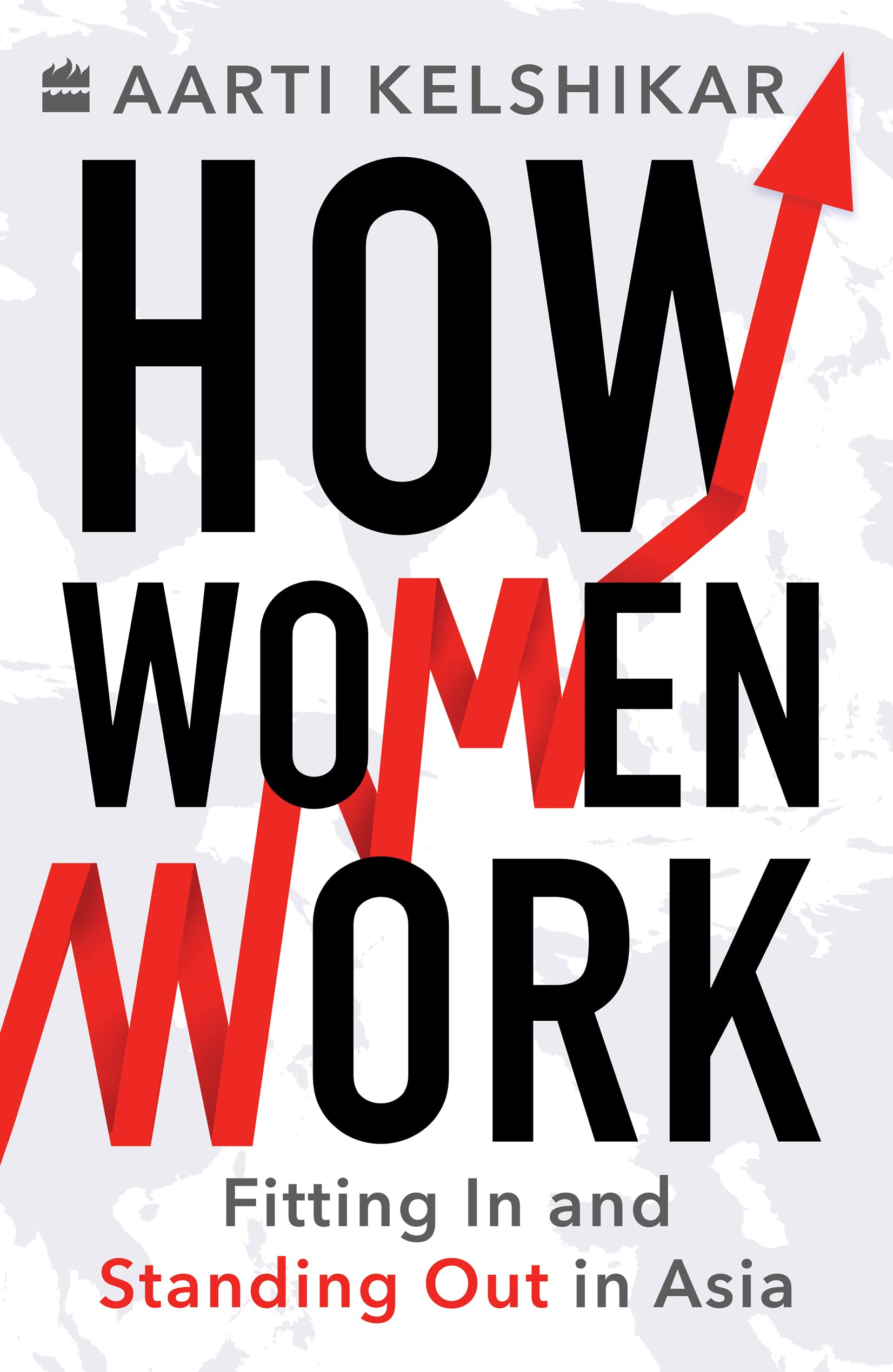The book “How Women Work: Fitting In and Standing Out in Asia” by Aarti Kelshikar enriches and deepens our understanding of women leadership in one of the most dynamic regions of the world.
From China to India, Singapore to the Philippines and Japan to Thailand, this book observes working women through a pan-Asian lens, using their triumphs and tribulations to present readers with lessons and learnings on leadership and success.
‘Fitting in’ and ‘standing out’ are seemingly contrarian ideas, but, from all accounts, Asian women don’t view them as ‘either/or’. Successful Asian women leaders do both on their own terms.
Read an excerpt from the book below.
Thailand
According to Thai tradition, women are often compared to the ‘hind legs’ of an elephant while the men are the ‘front legs’. While this could be inferred as men lead and women follow, it should be noted that Thai women have made significant progress in the corporate world.
Thailand, a country that has much respect for traditions, is one of the more liberal and tolerant places in Southeast Asia. Thailand scores 34 on Hofstede’s feminine dimension and is thus considered a feminine society. A feminine society is one with less assertiveness and competitiveness, where the dominant values are caring for others and quality of life.
From all accounts, Thai women consider themselves to be equal to men and don’t feel the need to seek special privileges. Perhaps a case in point is the manner in which International Women’s Day is celebrated in Thailand. In neighbouring countries such as Vietnam, it is customary for male colleagues to give a rose to their female colleagues; practices such as this are not the norm in Thailand. According to a senior HR director of a multinational corporation, ‘Working in Thailand is quite fair and more performance-driven rather than gender-driven. In our organization, we have 70 per cent of our workforce as female employees so I would say that if anything it might be the men who feel that they are the minority in the organization!’
Thai women are a step ahead in terms of personal gratification. As Beiersdorf ’s ASEAN senior vice president, Rakshit Hargave had a ringside view of the personal care products industry. His observation was that Thai women are conscious of their skin and overall personality, and they take the lead in spending and taking care of themselves.
Thai women make up more than one-third of senior management positions, and many have inherited family businesses. As per Grant Thornton’s Women in Business 2021 Report for Thailand, women held 29 per cent of senior management positions in mid-size businesses in Thailand. Notwithstanding this data point, Thai women are successful in the corporate world.
On reason for this is the Thai family structure, which allows one to live with parents and grandparents, enables women to continue to work. Another factor that helps is the availability and affordability of domestic help.
Interestingly, in Thailand, while there are many women leaders in the corporate world, there are fewer in politics. For a range of reasons, women may prefer to work in the corporate world than in politics.
Japan
Given the importance of harmony or ‘wa’ in Japanese society, conformity and perfection are greatly valued. This drive for excellence and perfection is evident in all walks of life. I have always been struck by the emphasis and care the Japanese give to creating the perfect external appearance whether it pertains to a cake, a gift or a person.
However, there is often a dissonance between the seemingly perfect external façade or behaviour and the underlying reality. Over coffee in a Singapore café, Yurika Kurakata, who works in professional development on East Asia for educators in the United States, shared how one of the first things many children in Japan are taught is not to cry in public places, as it disturbs people! Clearly, being mindful of others starts young. On a related note, filial duty and family responsibilities often override personal success or happiness.
Other values that are prevalent are the ingrained obedience, the reluctance to question authority, group-ism and insularity. As Yurika points out, in general the work culture in Japan has been less about grooming leaders and leaders-to-be and more about fostering followers who will listen and cooperate without questioning or challenging. This is gradually changing, but slowly.
Working long hours is the norm in Japan. And because death by overwork is not uncommon, they even have a word for it: karoshi, which refers to employees dying from stress-related ailments or to people taking their lives because of the pressures of the job. The propensity to work long hours doesn’t make it easier for women managers and leaders.
If Thailand and the Philippines are on the progressive end of the scale, more east literally and figuratively is Japan. In 2012, late Prime Minister Shinzo Abe rolled out ‘Womenomics’, a policy thrust aimed to help women ‘shine’. However, these policies do not seem to have significantly moved the needle with regard to ingrained mindsets and women’s empowerment in Japan.
In 2022, Japan ranked 116th amongst 146 countries in the gender gap rankings index of the World Economic Forum (WEF), taking the last spot amongst the Group of Seven industrialized nations. On a related note, despite 72 per cent of Japanese women being in the labour force, women are employed in just 14.7 per cent of senior roles.
India
On a recent trip to Mumbai, a hoarding on a small hardware shop caught my eye. On the red-coloured hoarding, typed in prominent white letters were the words ‘RV & Daughters’. I did a double take because these signs usually have the words ‘& Sons’ almost like a suffix, indicative of the practice wherein sons take over shops, companies and family businesses. Increasingly, however, there is a trend of more daughters taking over family businesses and running them well.
A paradox on many levels, India is chaotic and unpredictable but also vibrant and dynamic. It is a society where hierarchy and relationships coexist, as do collectivist and individualist traits. It is a place where time is relatively fluid, yet everything is needed ‘at the earliest’.
This dichotomy is prevalent throughout. At one level, society is patriarchal and at another, India has had both a woman prime minister and woman president. While women face many biases and challenges, they have done particularly well in fields such as banking and information technology, with many women assuming leadership positions in banks and financial institutions.
Historically, women in Indian society have been seen as nurturers and providers while men were the deciders or the breadwinners in the family. While this is changing, women are largely expected to bear the lion’s share of the obligations at home.
India ranks third in the world for women in senior management positions in mid-size businesses, according to Grant Thornton’s Women in Business 2021 Report. The percentage of women in senior management for India stood at 39 per cent, as against the global average of 31 per cent, which may be reflective of the changing outlook of Indian businesses towards working women. Where the opportunities are provided and the environment is conducive, women have done well, be it a village, a tier-two city or a bustling metro. That said, the journey for women is less linear and more nuanced, much like everything else in India.

Excerpted with permission from How Women Work: Fitting In and Standing Out in Asia, Aarti Kelshikar, HarperCollins India. Read more about the book here and buy it here.






















